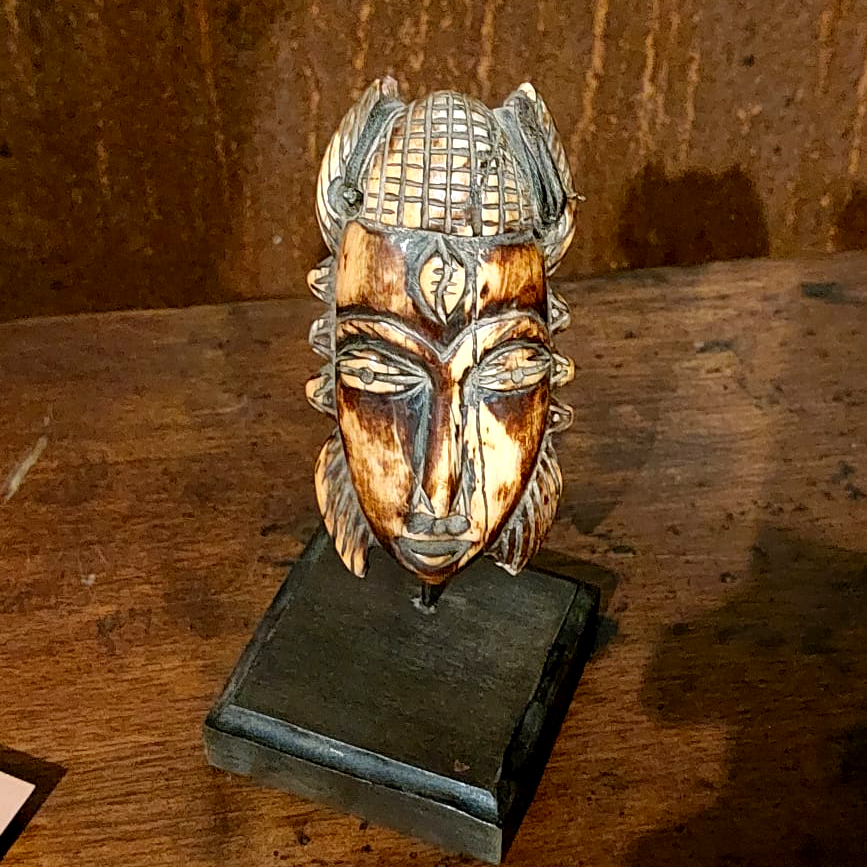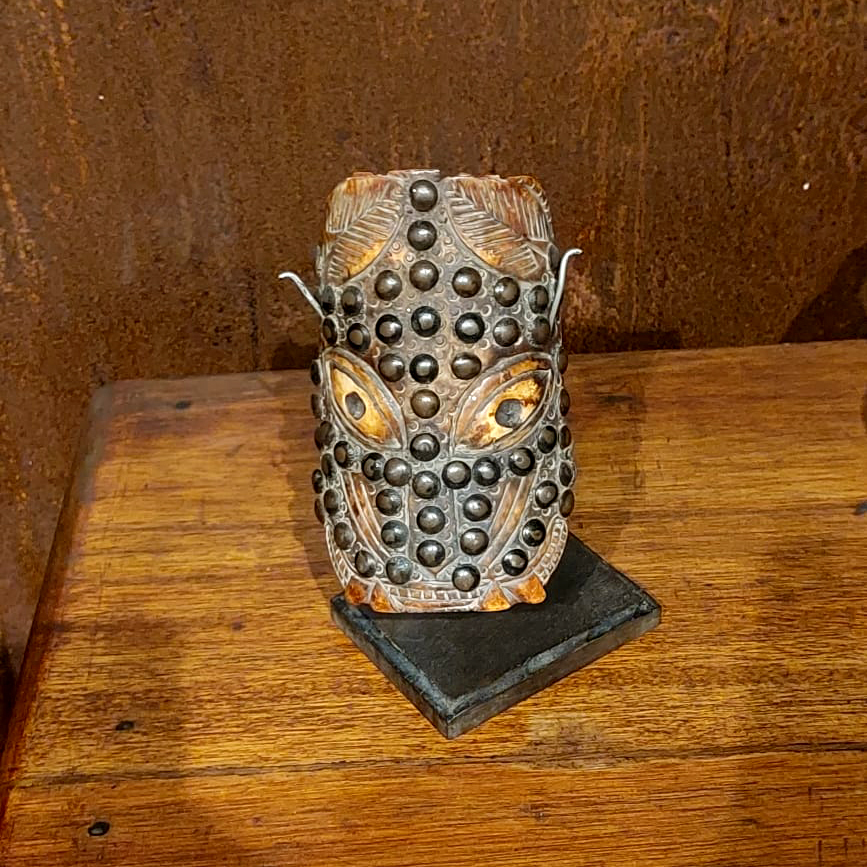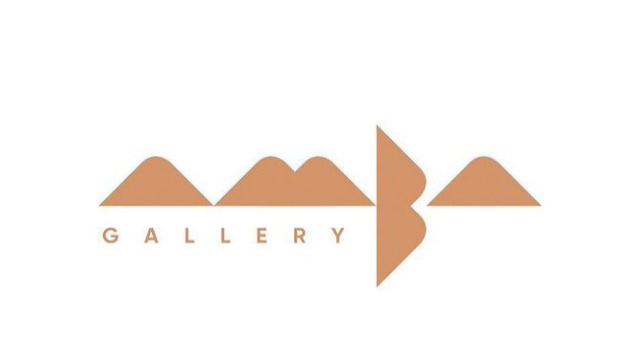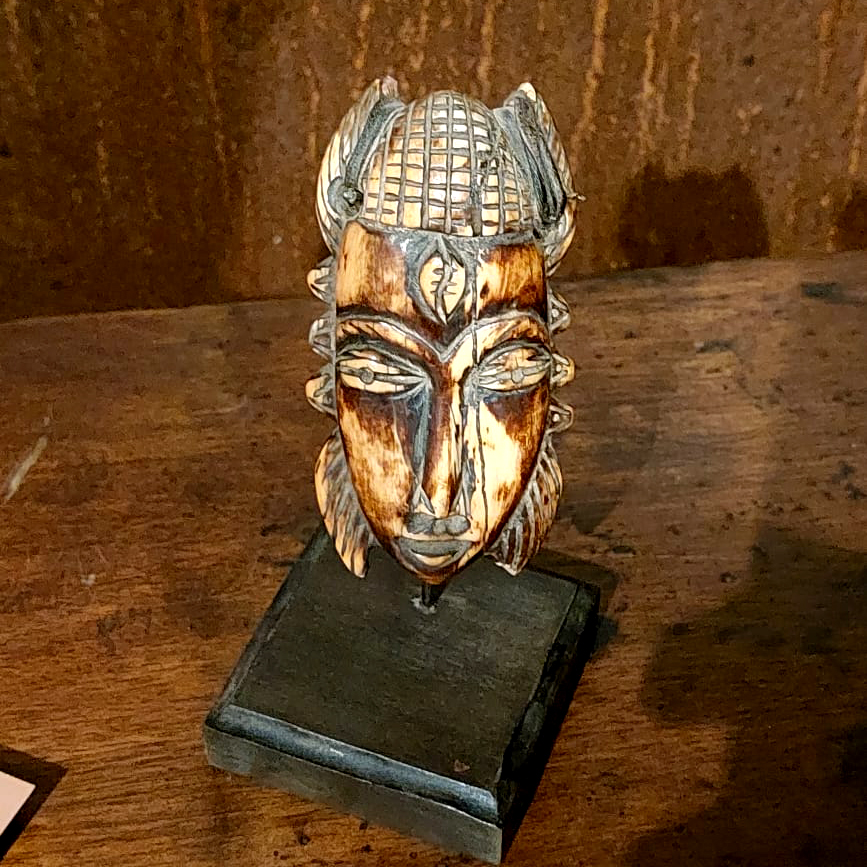These small 19th century Yoruba ornamental masks are called “omama.” They are decorative elements of an Orufanran (ceremonial costume worn by high-ranking Owo chiefs) from Yoruba in Nigeria as a privilege granted by the king (Olowo).
Consisting of a bulky coat or shirt covered in red flannel scales, the orufanran was studded with ivory images of human faces and the heads of crocodiles, leopards, and rams. The chiefs of Owo wore these ceremonial costumes, or orufanran, to demonstrate their exalted status.
Yorubaland is found between Ife and the Benin Kingdom. The Yorubas are a large ethnic group of Africa, especially present in Nigeria on the right bank of the River Niger, but are also in Benin, Ghana, Togo, and Ivory Coast where they are called Anango.
Owo is a city in Ondo State, Southwestern Nigeria. Between 1400 and 1600, Owo was the capital of the city-state of the Yorubas.
The ornamental masks are usually inlaid with dark wood or coconut shell to emphasize their boldly incised designs. Other metals are sometimes added as well.



